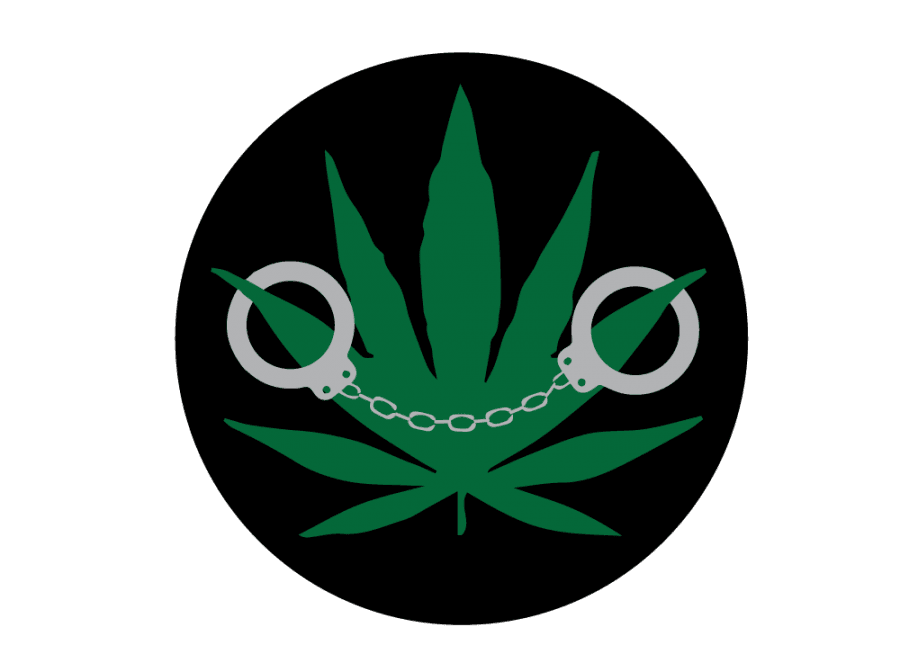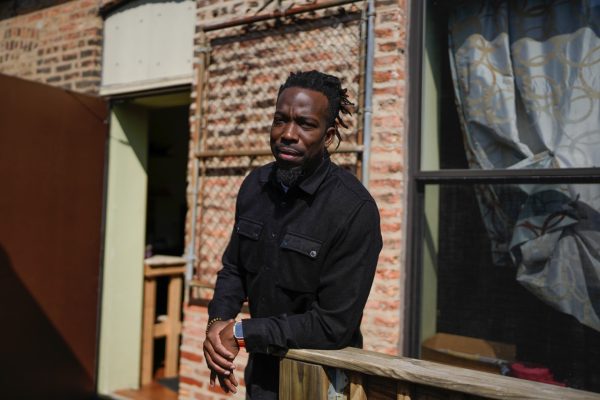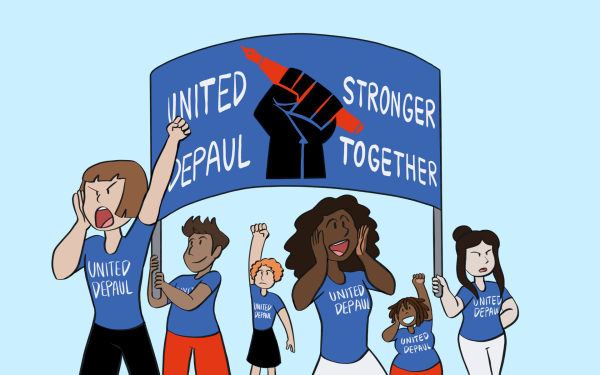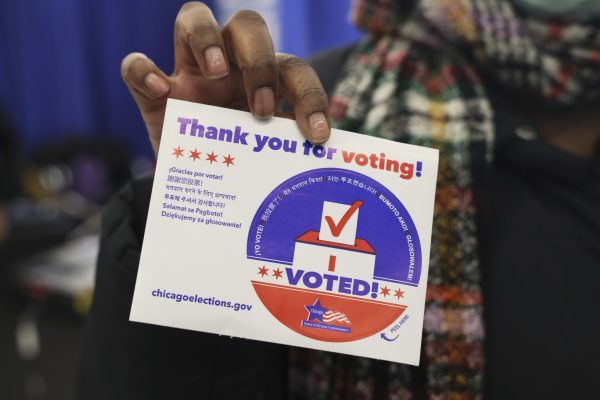Cook County ‘Reeferendum’:Residents say yes to recreational cannabis
When Kyle Crew was 19, he was arrested for selling a friend 3.5 grams of cannabis — enough for personal use and only worth a small fine in 22 states today.
But Crew was arrested in Arkansas, where he spent 120 days in county jail. The police were looking to flip him for a serious dealer and asked him to wear a wire, but Crew said he didn’t want to throw anyone under the bus for his choices. Studying to earn a degree in anthropology and with no prior arrests, Crew was hardly a seasoned criminal.
He watched cell mates beat each other to a pulp — one even mangling another inmate’s eye. He dealt with showers that had water so scalding his skin would peel after being exposed for too long. There was no outdoor time in county jail, and Crew could only talk to visitors through a video monitor for short periods of time.
“Prison is intense boredom punctuated by moments of violence,” he told The DePaulia. “You have to take care of yourself. The guards aren’t going to do it.”
Crew’s life was forever altered by his time in prison. He says the experience hardened him, and has never quite left him.
“Its still with me,” he said. “That acute PTSD. I still have dreams about (prison).”
During the primary elections on March 20, Cook County voters were asked on a referendum whether cannabis should be legal for adults who are at least 21 years of age. Over 68 percent of voters said yes — the equivalent of a landslide as far as referendums are concerned.
The referendum was non-binding, meaning it doesn’t force anything into law, but some advocates are hoping it will sway lawmakers to legalize cannabis in Illinois. And people like Crew are left wondering if their lives would have been radically different had the drug never been illegal in the first place.
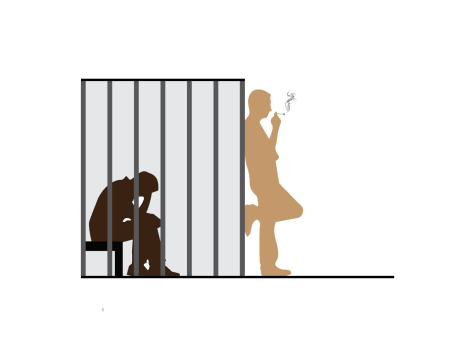
Ali Nagib is the Assistant Director for the National Organization for the Reform of Marijuana Laws (NORML). For almost 50 years, NORML has been fighting to sway public opinion regarding cannabis and end what they say is a pointless and ineffective drug war against a plant.
Nagib says that referendums in Illinois are usually rolled out to give legislators an idea of where the public stands on issues and sometimes to increase voter turnout.
“We were happy to see the results,” he said. “Though they were about what we expected based on our own information.”
Nagib said that Illinois could be on the cusp of legalization, but the true test will be in November during the gubernatorial election — when Illinois will either turn a corner, or continue to be stuck in the gray area of decriminalization.
“If JB Pritzker is the next governor, I think it is very likely that it will be passed next year,” he said. “The biggest roadblock to legalization is our current governor, Bruce Rauner.”
On a national level, Senate minority leader Chuck Schumer recently proposed legislation to decriminalize marijuana at the federal level — a potentially groundbreaking piece of legislation.
But if the state votes for legalization, what would happen to individuals who are currently incarcerated for cannabis crimes? Some say their crimes should be pardoned, while others argue concessions shouldn’t be made for people who were aware of the law but chose to break it anyway. The reality is not as black and white.
Nagib said that it would likely be decided on a case-by-case basis and prisoners could petition for a hearing in order to reduce their sentence.
“You can’t just wave a magic wand, and get everyone out of prison,” he said.
It becomes even more complicated when considering inmates that have multiple crimes on their records, many of them violent. Inmates with cannabis charges range from college kids like Crew was, to hardened criminals with extensive rap sheets.
Nagib said that Illinois should look to Massachusetts for how to handle the incarcerated after legalizing cannabis. He said that they have taken things a step further and recognized that cannabis crimes have disproportionately affected people of color.
“We need to do something to help the communities that have been affected by this gross inequality,” he said.
Amy Hildebrand, president of Students for Sensible Drug Policy (SSDP), agreed with Nagib about an imbalance within the prison system as it relates to cannabis.
“Legalization is prolific no matter where it happens,” she said. “Especially in Cook County — a place riddled with a history of brutally racist policing and incessant media portrayals of supposed chaos and violence.”
Today, Crew is 29 and lives in New York. He was able to finish his degree, but the college experience was taken from him. He was on five years of probation, and it left him living a life of constant stress and paranoia.
“I was a college student who couldn’t even be around a beer can,” he said. “I was so afraid that I would make one little mistake and be sent back to prison for the rest of my probation time.”
His time in prison altered Crew forever and motivated him to get his master’s degree in sociology. He has studied policing in America and is passionate about contributing to ending the war on drugs. Crew says it’s only a matter of time before cannabis is legal nationwide.
“It’s 100 percent hypocritical if we keep people locked up for crimes that we no longer call a crime,” he said. “Hearts and thoughts are changing. It’s only a matter of time. Get the dinosaurs out of the way and give the people what they want.”


